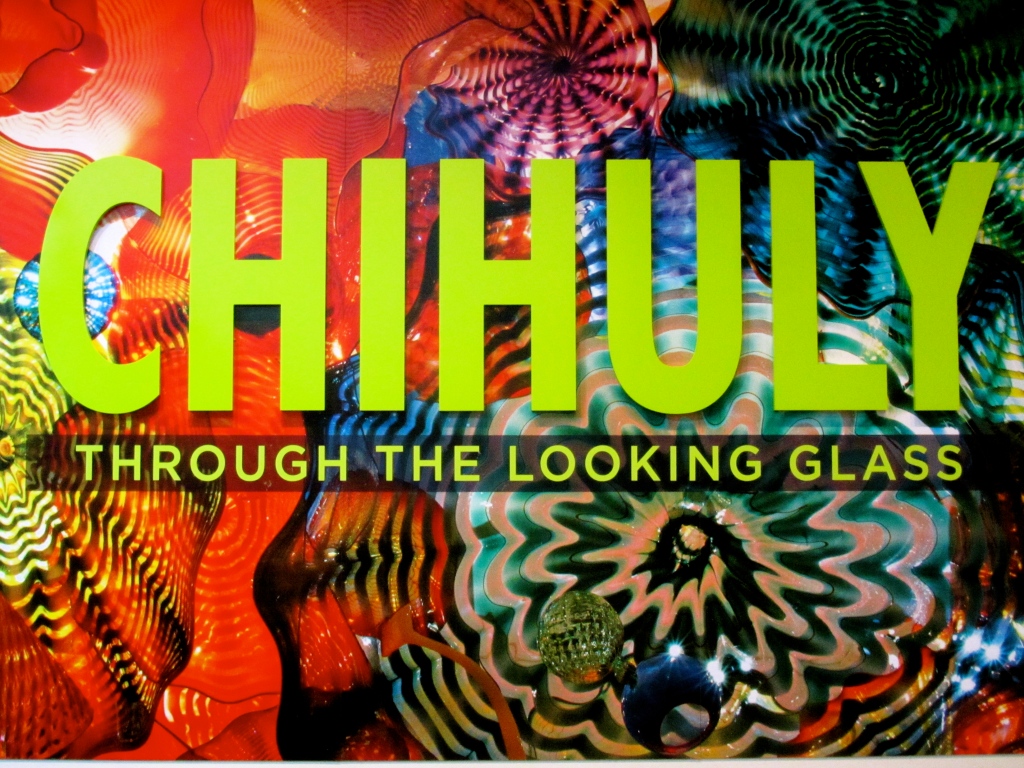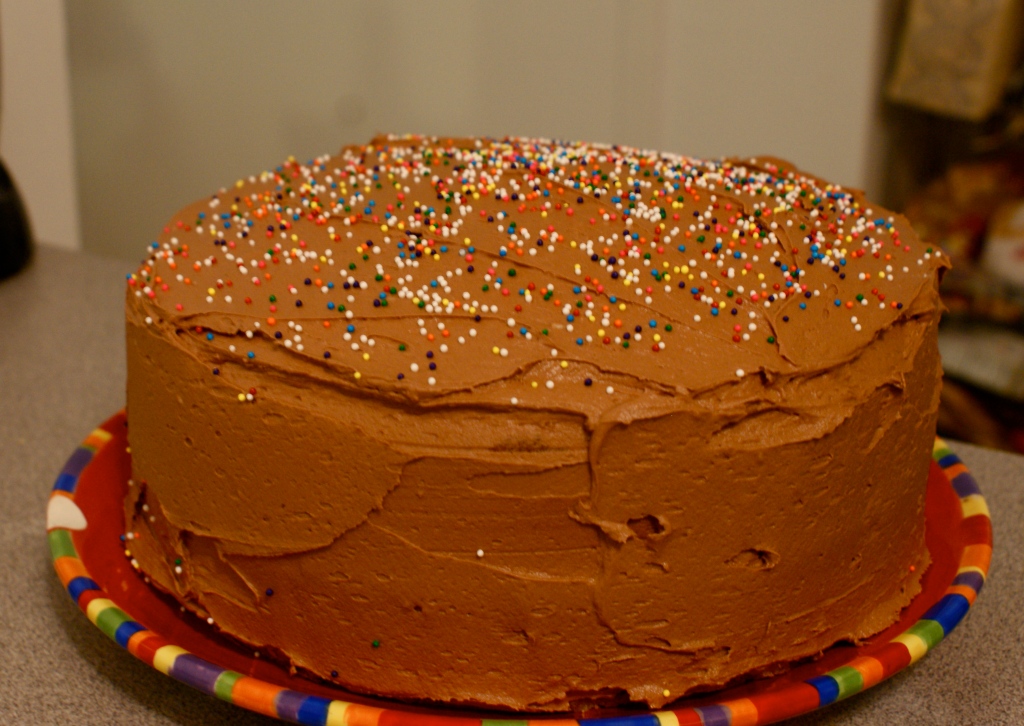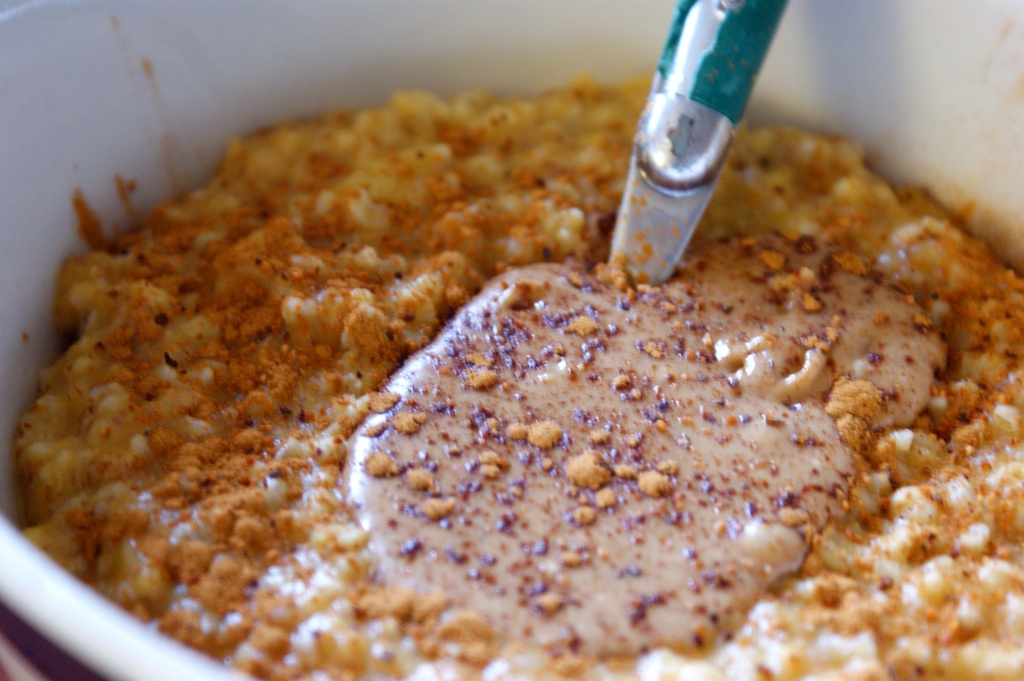Oh, May.
You were a treat.
I read a lot. I read a lot of books I really enjoyed. I read a lot of books that I really enjoyed and then wanted to read more.
All around, a fun month for reading!
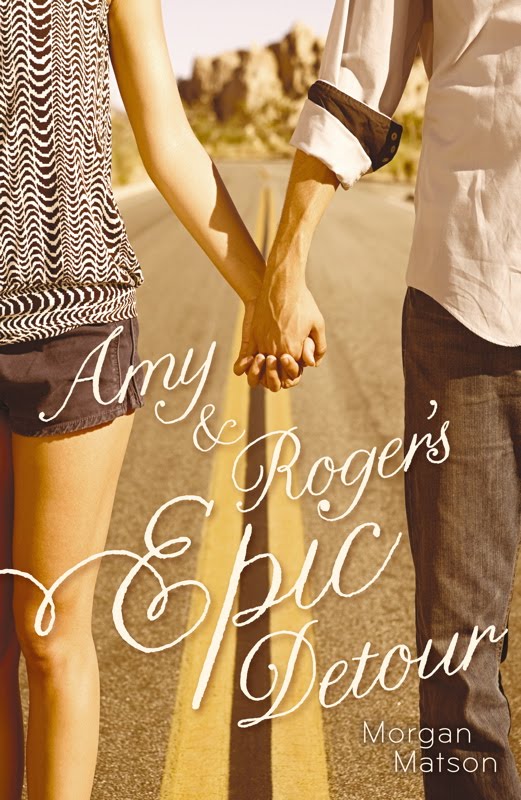


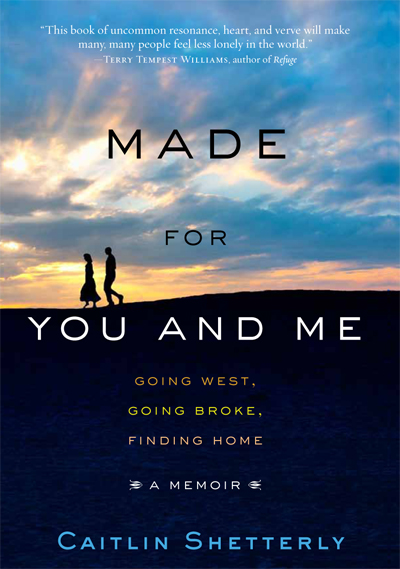
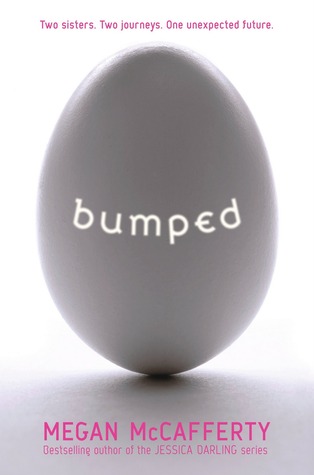

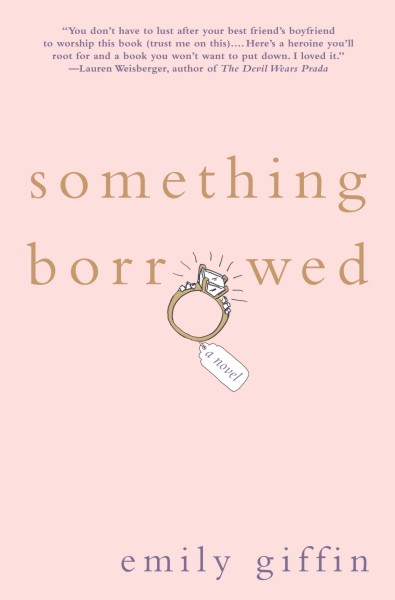
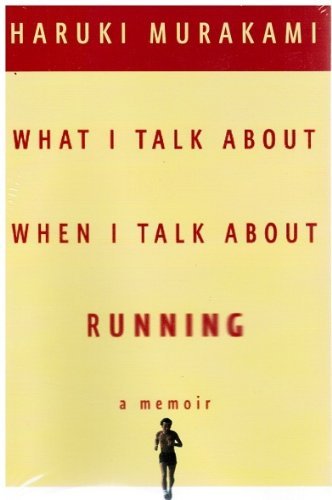

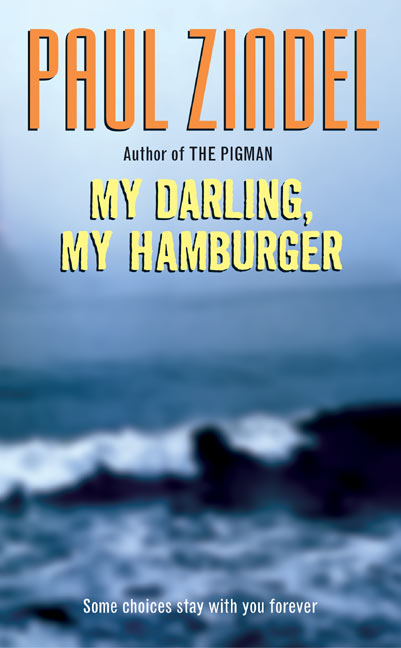
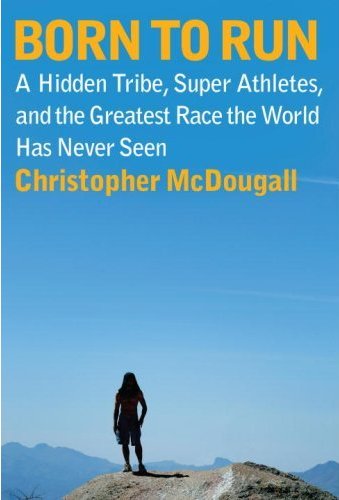
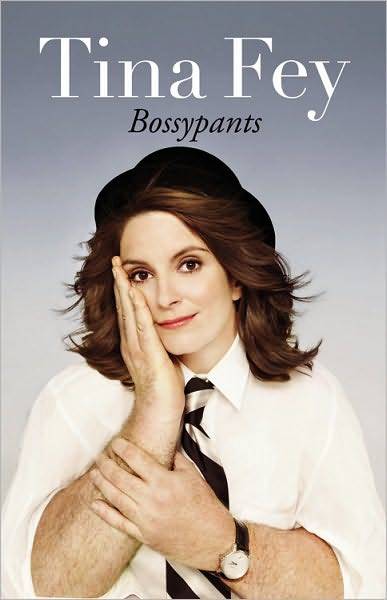
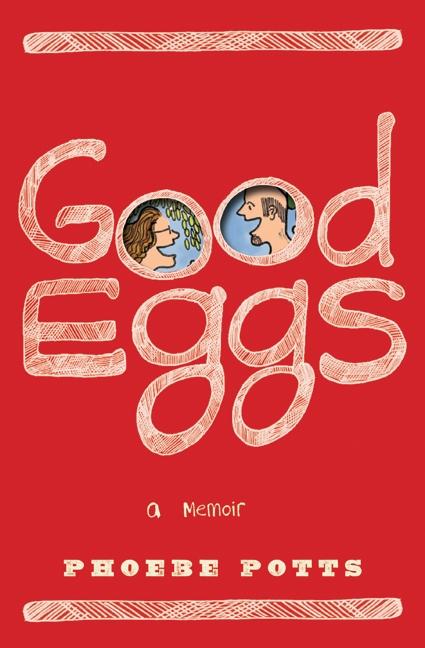
1. Amy & Roger’s Epic Detour by Morgan Matson
My last “on-syllabus” book of the semester, but also the first “on-syllabus” book of my grad school career that had me completely at hello. Maybe there are books you read that make you want to give the book a hug, or maybe, a smart, mature book might leave you wanting to marry a book, but this book made me want to eat it. And it would taste like candy.
Actually, that’s a fairly accurate description of many of the books I read in May!
But anyway, the story begins with Amy’s family dissolving. Her father died in an accident, her twin brother was shipped off to rehab, and her mother decided to take a new job in Connecticut, leaving Amy behind in California while they sell one house and buy another. When it comes time for Amy to join her mother, it also seems like a great way for Amy’s mother to be rejoined with the red Jeep she left behind.
One problem: Amy doesn’t drive. Enter romantic interest: Roger. An old family friend finishing his first year of college and spending the summer with his father in Pennsylvania, Roger needs a ride and Amy has a car that needs driving. Amy’s mother has their route calculated and hotel reservations made along the way… but of course, what kind of book would it be if Amy and Roger didn’t decide to take off on their own?
Hijinks, emotional arcs, likable side-characters, make-overs, road trip playlists, local food indulgences, and tortured flirtation ensue.
Devoured it.
Loved it.
2. Hard Love by Ellen Wittlinger
This is one of those quintessentially “YA” Young Adult book. One of the original Printz Honors, I feel like this book could be voted Most Likely To Show Up On Your Children’t Lit Course Syllabus. I, therefore, have read it three or four times before, and at least once when I was an actual teenager.
If you are one of the two people on this planet who have not read this novel, it is quite good, I think, and here’s what you need to know:
John’s parents are divorced. He lives with his mom and takes the train into Boston to visit his Dad’s bachelor pad on the weekends. His father ignores him and goes on dates, his mother weeps about her divorce and doesn’t show John any affection. John has one friend who is kind of a loser and spends too much time representing a heteronormative, nerdy kind of teenaged lifestyle.
John’s life sucks, so why not recreate yourself a little? John writes a zine (aww…. how nineties is that!!) under the name “Gio,” and gets the attention of another zine-writer, Marisol, who lives in Cambridge. Marisol is gorgeous, challenging, mercurial, and a lesbian. Of course, John/Gio falls in love.
The whole “girl falls in love with gay best friend” is almost a narrative trope at this point, but I can’t say I’ve heard of a story about the reverse other than this one!
2000 Printz Honor
3. Unbearable Lightness by Portia de Rossi
I picked up this book for two reasons.
Reason #1: I used to watch Ally McBeal in high school, and I remember clearly all of the hype about the show’s actresses, including Portia de Rossi. Supposedly, the environment on the set was toxic: Calista Flockhart was clearly a too-skinny freak of nature and the show dressed her to accentuate her thinness, so the rest of the female cast felt like they needed to be gaunt to compete. I hoped that de Rossi’s memoir would be an insider account of what was going on there, in the cast of an only moderately successful television show, that seemed to formally usher in the stick-figure-body aesthetic of the late 90s and early 00s.
Reason #2: I heard it was actually a decent read, not obviously ghost-written or trashy.
I was right about #2, for sure. The back cover has blurbs from Jonathan Safran Foer, Jeanette Walls, and Augusten Burroughs for goodness sake! This is not your average celebrity memoir!
I didn’t find what I was expecting with #1, but what I found was equally interesting. This book really is not a Hollywood tell-all but a memoir. De Rossi describes her childhood in Australia, her career as a model that segued into acting, and her struggle to identify (inwardly and outwardly) as a homosexual woman.
By the time she made it onto the cast of Ally, she was already heavily into disordered eating, habits that developed when she was a young, aspiring model that her peers and parents seemed to approve of (or at least look the other way from). Hanging out with Calista Flockhart and Courtney Thorne-Smith and Lucy Liu didn’t drive de Rossi to anorexia, but the pressure of being a working actress in LA, with frequent costume fittings and sample-sized clothing, and with the means to over-exercise and seek professional help from a nutritionist, it was easier for de Rossi’s already present disorder to escalate quickly.
She barely mentions her female costars in this book, but she so clearly portrays this kind of pandemic Hollywood attitude toward women’s weight and appearance that it is easy to imagine that Flockhart and Thorne-Smith and Liu could have easily had similar personal experiences that kept them losing weight during the show’s filming… and contributing to whatever effect that had on women watching their show from home.
Anywaaaaay, super interesting read that I breezed through in an afternoon. I found myself very invested in de Rossi’s life and career and worried for her health, and I was glad to know that in Real Life, she was doing okay.
And yes, I’ve been watching Ally McBeal reruns on Netflix. It’s kind of like Grey’s Anatomy with lawyers!
4. Made for You and Me by Caitlin Shetterly
I picked this up from one of my favorite places to hear about quirky new books: NPR’s weekly “What We’re Reading” report.
And while I was reading it, I realized that when it comes to narrative non-fiction, I have a really big soft-spot for books like Shetterly’s.
I think I might call them “Memoirs by normal-ish people who have done little noteworthy other than craft their particular life experience into an interesting story.”
And this is why I don’t get mad when 20-somethings write memoirs. For me, a memoir isn’ about the destination, it’s about the journey! If you can take me on a journey, I love you.
Anyway. I loved this book. The journey Shetterly takes you on is one from New England to Los Angeles and back again. Caitlin gets married and she and her husband decide to pursue their lifelong dream of moving to LA and living as working artistic-people. However, the move is neither cheap nor smooth (as very few moves tend to be), and their savings is pretty much shot… just in time for the Great Recession to swing in to eliminate the middle-class day jobs the two were hoping to acquire to pay the rent, and for Caitlin to get pregnant…. and if that weren’t enough, she develops hyperemesis gravidarum and can’t walk across the living room much less find a job or work.
So the thirty-something couple and their new baby end up moving back to Maine… and moving in with Catilin’s mother. But that’s not really the point. The point is that Shetterly takes you on this very American journey of hope, pursuit of happiness, and the nuclear family… when she fails, you can see how thousands of other American families can so easily fail even when they are doing everything right… but also that we are all kind of in this economic rollercoaster ride together.
Her story could be anybody’s story, but in a good way.
5. Bumped by Megan McCafferty
My awesome roommate pre-ordered this book for me for my birthday in March! This is one of my favorite methods for gift receiving – I would gladly forgo a gift on my actual day of birth in exchange for an Amazon delivery on pub day! It’s a little like Christmas!
I have waxed poetic about my love of Megan McCafferty’s Jessica Darling oeuvre before.
I had mixed but generally positive feelings about Bumped, which is McCafferty’s first “straight” YA novel, as well as a departure into the oh-so-trendy world of futuristic dystopia.
The dystopian premise: every adult gets a disease that renders them sterile. All procreation lies on the shoulders of the teenage demographic… so of course, the whole system becomes heavily monetized, with babies being purchased, adoptions and surrogacy brokered by the powerful and rich, and the more fertile you are, the cooler, most popular, and closer to celebrity you become!
I didn’t have any problems with the story itself. The premise was interesting with lots of surprising and thought provoking details, and the main plot clever and snappy (two twins, separated at birth, meeting for the first time: one who lives in a private, religious cult that favors traditional attitudes toward procreating such as “marriage” and “don’t sell your baby,” the other a popular overachieving girl with a contract to bear a child for a high-powered couple as soon as they find a suitable sperm donor).
But I am, sadly, getting a little bored/overwhelmed with the poor, beat-int0-the-ground dystopia.
Similarly, the recent influx of built-in-trilogies. Can’t we just write longer books instead of spreading out the goods intentionally?
I’ll be excited to read book 2, though, whenever it comes out…
6. What Happened To Goodbye by Sarah Dessen
What to say about a Sarah Dessen book that hasn’t already been said?
Janssen wrote a pretty solid review a few months ago. I stand by everything she says about this novel and the whole “Sarah Dessen” aesthetic.
There’s just something comforting about her novels. Everything you want out of this book, you will get. So while some people might find her novels formulaic, I delight in finding out exactly how she plays with the formula with each successive book, and how her knack for creating likable, three-dimensional characters and rich settings (although they are always suburban?!? who can do that?), make me, the reader, seduced into her novels.
Another win for Ms. Dessen.
An aside for fellow Dessenophiles: this is the THIRD book that Jason has appeared in as a significant minor character… what is it about that boy? Do you think Sarah Dessen has a soft spot for the old nerd? Do you think he’s having some kind of multi-book storyline that will end up with him as a love interest two or three books down the road? I’m so obsessed with this…
7. Something Borrowed by Emily Giffin
Okay, at this point in my summer-break reading, I’m not even pretending to be a literary-type person.
Whatever.
This is chick lit! It’s been turned into a RomCom! It’s got a lot of silliness and betrayal and sex and consumerism!
I liked it.
This is probably like saying “I like eating Krispy Kreme donuts.” Of course you like eating Krispy Kreme donuts! They are deep fried in fat and covered in sugar! Your body was made to like eating Krispy Kreme donuts!
I ate a book donut in May and it was good. I put the sequel on hold. I was a little disheartened that the book ended with the protagonist kind of “falling into” the resolution of her love-triangle, but all in all I thought the conclusion was an interesting way to end the novel. Is it too much to ask for a female romantic protagonist who isn’t either A) totally confident and outgoing and take charge or B) completely mousy and ineffective and doesn’t DO anything?
I guess I can’t eat a bunch of donuts and expect them to be better than… something that’s not just a donut.
8. What I Talk About When I Talk About Running by Haruki Murakami
Do you ever get into a reading mood? When you just want to read a certain type of book or books about a certain topic or maybe the same book over and over again?
Maybe it’s just me.
But I hope you like books about running, because that’s what I’m in the mood for.
That being said, I really liked this book for many reasons other than the fact that it is a book about running. The author is a well-known writer of fiction in Japan, so he can craft a sentence for sure. And I loved the Not-Western-ness of some of his attitudes and of his writing style in general. Refreshing.
But above all, this is one of those kind of meandering, philosophical books that has you reaching for a pen and paper to jot down quotes that say something so perfectly, something you never thought anyone else ever thought about except for you.
For example, this quote that has nothing to do with writing but everything to do with life (and maybe YA fiction):
Sixteen is an intensely troublesome age. You worry about little things, can’t pinpoint where you are in any objective way, become really proficient at strange, pointless skills, and are held in thrall by inexplicable complexes. As you get older, though, through trial and error you learn to get what you need, and throw out what should be discarded. And you start to recognize (or be resigned to the fact) that since your faults and deficiencies are well night infinite, you’d best figure out your good points and learn to get by with what you have.”
Good stuff. The book is structured as short essay-type pieces that revolve around Murakami’s experiences a long distance runner, but yeah, it’s not all about running. Don’t worry. Try it anyway.
9. Hush by Eishes Chayil
Okay. I am pounding out a whole system of weird reading philosophies here, but bear with me. Along with reading moods, I think people have “hot topics” that they just can’t resist. Ever. Sometimes, the topics just come to you: my mother has read more books about mountain climbers than 95% of the population, but very rarely chooses to read a book just because it’s about mountain climbers. She reads them because somebody recommended the book or because it’s about something entirely other than climbing mountains but somehow is also about climbing mountains, et cetera.
Anyway. One of my hot topics for reading/documentaries/Dateline specials?
Secluded religious communities that hold onto traditional ways of life in spite of all the 21st century America happening around them.
So, basically, stories about fundamentalist Mormons, the Amish,
and Orthodox Jews!
Hush is an intense young adult novel about life for young girls in extremely Orthodox communities. The kind of child abuse that occurs in this novel is by no means unique or even prevalent to this religious community, but the religious beliefs regarding women, sex, marriage, and the pressure placed upon a family unit to be godly, to be pious, to be normal, creates a kind of strange environment in which severe child abuse gets swept under the rug. Young victims are ignored or silenced and perpetrators are never confronted and can continue to abuse other children.
It’s a vicious cycle. This book is not only an “insider’s look” at a religious community that still thrives today, slightly outside the focus of the average American, but also calls attention to this systemic problem and calls for action to be made within the communities themselves.
2011 William C. Morris Award Finalist
10. My Darling, My Hamburger by Paul Zindel
File this one under “Trying to Read Those Children’s/YA Books Everyone Has Already Assumed I’ve Read.”
Also file this one under “Weird Books That I Don’t Quite Appreciate Because I’m A Modern Reader With Modern Expectations.”
This is Zindel’s “problem novel” about abortion. I read it a few weeks ago but don’t remember much about it other than the fact that female low-self esteem was usually followed by this random older guy appearing to take the offending (and desperate) girl out on a date… where they found this guy and decided he was worth speaking to was a mystery to me: his character is basically Generic Offensive Asshole.
I guess when you are feeling down, this is what you get, ladies. A Generic Offensive Asshole to punish you for making bad decisions.
11. Born to Run by Christopher McDougall
See: Reading Mood… but also see: Reading Candy! This book was awesome and I ate it right up in like, two days.
This book is…
– One part Intro to Ultramarathons. Running 50 to 100 mile races might not seem like the most interesting topic for a book, but it certainly attracts a very interesting breed of person and McDougall does a great job of capturing the many interesting characters who have found and excelled at the sport. (Spoiler: they are all kind of crazy)
– One part History of People. Running, McDougall posits, is an innately human thing to do. He gathers the data and research on primitive running cultures and examines how they run, why they run, what they eat, how they live, and talks about how those choices keep them free from injury and able to maintain superior athletic performance. I now want to run around barefoot all the time and eat chia seeds.
– One part Epic Adventure. McDougall does a story on the notoriously elusive and skilled runners, the Tarahumara. In digging into the jungles of Mexico to find them, he meets a random crazy ultramarathoning white dude who has earned the Tarahumara respect… and who also wants to bring some of America’s best ultramarathoners down to the jungle to have an epic 50 mile race. Somehow McDougall and this Crazy Guy convince some of those crazy characters to travel down into Mexico (while avoiding food poisoning, falling off cliffs, and Mexican drug cartels) and compete against the Tarahumara.
They pull it off in the end, but the path to get there is pretty ridiculous.
I really just want to buy this book for people. I don’t know why, but I do.
12. Bossypants by Tina Fey
I read this book from start to finish last Wednesday while I sat in various airports for various lengths of time!
I’m not sure I have much to say about it, though. This book is getting a lot of good press and for good reason. Everyone wants Tina Fey to be their best friend, and here she is, telling you about her life and making you laugh.
My favorite part is when she writes about 30 Rock, and how she wanted to write a really popular, accessible sitcom that would make a lot of money… but for some reason, 30 Rock just wouldn’t have it. It just became weirder and weirder.
That just makes me smile.
13. Good Eggs by Phoebe Potts
When I was planning out books to bring with me for my trip to Michigan, I had this feeling that I would find at least one good book lying around my house. Probably a book I hadn’t heard of, or maybe one I’d been meaning to read that would just appear on a kitchen counter…
This was that book! And it was really good!
Remember how I like “Memoirs by normal-ish people who have done little noteworthy other than craft their particular life experience into an interesting story?” Here’s another one! AND it’s a graphic novel!! Best day ever!!!
This actually did kind of remind me of Made for You and Me, but in reverse. Where Caitlin is an artistic New England girl struggling to find a place in the world after she gets married and becomes unexpectedly pregnant, Pheobe Potts is an artistic New England girl struggling to find a place in the world after she gets married and becomes unexpectedly infertile.
I’m glad I spotted this book hiding on the bottom level of the end table sitting next to the chair in my parents’ family room.
13 books read in May
(you overachiever, you!)
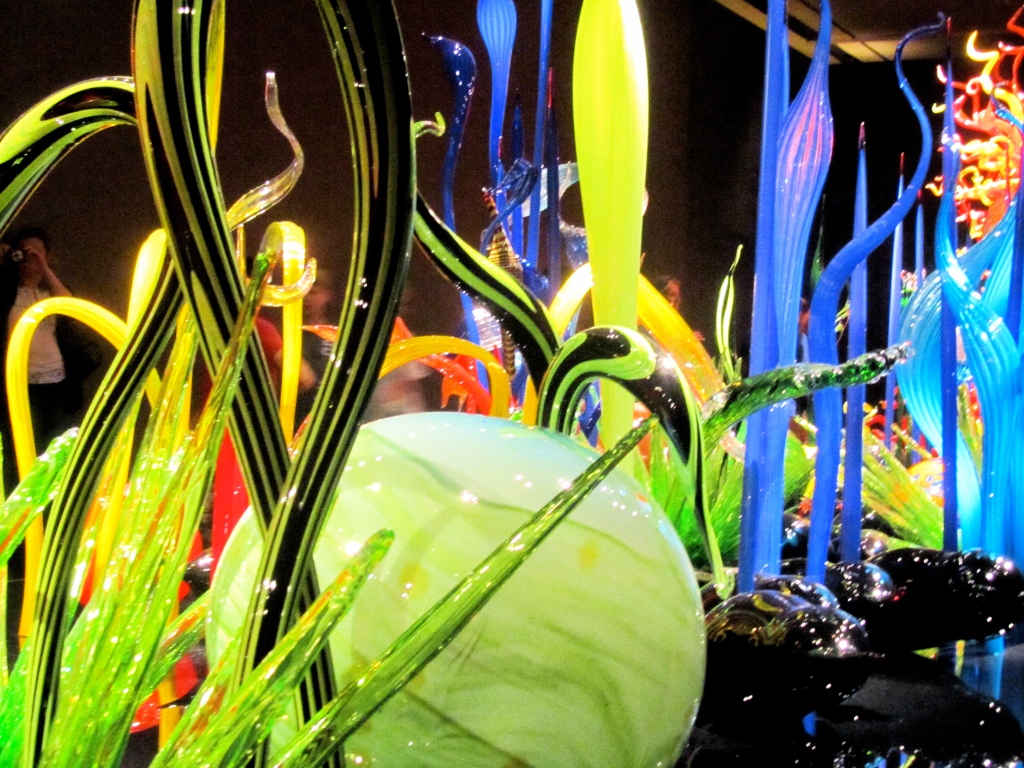 If you get a free afternoon and you are in the area, you should really visit.
If you get a free afternoon and you are in the area, you should really visit.